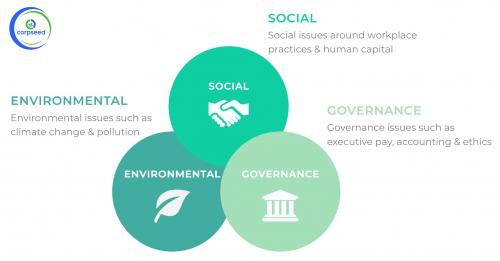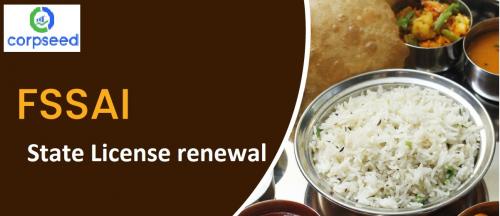Why FSSAI Central License Compliance is Non-Negotiable for Food Businesses?
The Food Safety and Standards Authority of India (FSSAI) is a regulatory body responsible for ensuring the safety and quality of food products in India. FSSAI's Central License is required for businesses engaged in food processing, manufacturing, packaging, and distribution.
Compliance with FSSAI Central License regulations is non-negotiable because it is crucial to protect public health and safety. Non-compliance can result in various risks, such as food contamination, foodborne illnesses, and even death. FSSAI regulations are designed to ensure that food products are safe, hygienic, and of high quality, which is essential for maintaining public trust and confidence in the food industry.
Additionally, FSSAI Central License compliance is also necessary for businesses to operate legally. Failure to comply with FSSAI regulations can result in penalties, fines, and legal action, which can damage a business's reputation and financial standing. Compliance with FSSAI regulations is, therefore, essential for the long-term sustainability and growth of a food business.
In summary, FSSAI Central License compliance is non-negotiable for food businesses because it is essential to protect public health and safety, maintain public trust and confidence in the food industry, and operate legally.
What are the benefits of central FSSAI license?
The Central FSSAI (Food Safety and Standards Authority of India) License is a mandatory requirement for food businesses operating at a large scale in India. Here are some of the benefits of having a Central FSSAI License:
- Compliance with regulatory requirements: The FSSAI Central License renewal ensures that food businesses comply with the regulatory requirements of the FSSAI. This includes maintaining hygiene and sanitation standards, ensuring food safety and quality, and adhering to labeling requirements.
- Legitimacy and credibility: The Central FSSAI License adds legitimacy and credibility to a food business, as it demonstrates the business's compliance with regulatory requirements and commitment to maintaining high standards of food safety and quality.
- Increased consumer confidence: Consumers are becoming increasingly concerned about the safety and quality of food products. Having a Central FSSAI License can help build consumer confidence in the products being sold by the business.
Expansion opportunities: A Central FSSAI License is necessary to operate a food business at a large scale, which means that having the license can open up expansion opportunities for the business.- Global recognition: The FSSAI is recognized globally as a regulatory body for food safety and standards. Having a Central FSSAI License can help businesses gain recognition and credibility in international markets.
In summary, having a Central FSSAI License is beneficial for food businesses as it ensures compliance with regulatory requirements, adds legitimacy and credibility, increases consumer confidence, creates expansion opportunities, and provides global recognition.
What is the requirement of FSSAI Central license?
The FSSAI Central license in India is mandatory for food businesses that are involved in activities like food manufacturing, processing, packaging, storage, and distribution. Here are the requirements for obtaining a Central FSSAI license:
- Business registration: The food business must be registered under the appropriate government authority like the Registrar of Companies (ROC).
- Food safety management plan: The food business must have a food safety management plan in place that includes a Hazard Analysis and Critical Control Points (HACCP) plan or any other food safety management system.
- Infrastructure: The food business must have adequate infrastructure to support the food production process, including equipment, storage facilities, and transportation facilities.
- Qualified personnel: The food business must have trained and qualified personnel to manage and supervise the food production process.
- Product information: The food business must provide information about the products being produced, including the ingredients used, nutritional information, and any allergen information.
- Compliance with regulations: The food business must comply with all relevant regulations and standards set by the FSSAI.
- Central FSSAI license fee: The food business must pay the appropriate fee for obtaining a Central FSSAI license.
In summary, the requirements for obtaining a Central FSSAI license include business registration, having a food safety management plan, adequate infrastructure, qualified personnel, providing product information, compliance with regulations, and payment of the appropriate license fee.
What is the difference between FSSAI state license and central license?
The FSSAI (Food Safety and Standards Authority of India) state license and central license are two types of licenses issued by the FSSAI to food businesses in India. The main differences between the two are as follows:
- Jurisdiction: The FSSAI state license is issued by the state government and is valid within the state where the business is located. On the other hand, the FSSAI central license is issued by the Central Government and is valid across the entire country.
- Business turnover: The FSSAI state license is mandatory for food businesses that have an annual turnover of up to Rs. 20 crores. The FSSAI central license online is mandatory for food businesses that have an annual turnover of more than Rs. 20 crores.
- Scope of operations: The FSSAI state license is suitable for food businesses that operate within the state and do not have a pan-India presence. The FSSAI central license is suitable for food businesses that operate across multiple states and have a pan-India presence.
- Application process: The application process for the FSSAI state license is simpler and can be done online. The application process for the FSSAI central license is more detailed and requires more documentation.
- License fee: The license fee for the FSSAI state license is lower than that of the FSSAI central license, which is more expensive.
In summary, the main differences between the FSSAI state license and central license are jurisdiction, business turnover, scope of operations, application process, and license fee.
FSSAI Central License Online - Documents, Procedure
The FSSAI (Food Safety and Standards Authority of India) Central License can be applied for online through the FSSAI website. Here are the documents and procedure for obtaining a Central FSSAI License online:
Documents required:
- Form B duly completed and signed.
- Blueprint/layout plan of the processing unit showing the dimensions in meters/square meters and operation-wise area allocation.
- List of Directors/ Partners/ Proprietor with complete address and contact details.
- Name and list of equipment and machinery along with the number, installed capacity and horsepower used.
- Food category list to be manufactured.
- Authority letter with name and address of the responsible person nominated by the manufacturer along with an alternative responsible person indicating the powers vested with them viz assisting the officers in inspections, collection of samples, packing & dispatch.
- Analysis report of water to be used as an ingredient in food from a recognized/ public health laboratory to confirm the portability.
- Proof of possession of premises.
- Partnership Deed/ Affidavit of Proprietorship/Memorandum & Articles of Association towards the constitution of the firm.
- Copy of certificate obtained under Coop Act - 1861/Multi-State Coop Act - 2002 in case of Cooperatives.
- NOC from manufacturer.
- Food safety management system plan or certificate.
Procedure:
- Visit the FSSAI website and click on the 'Central Licensing' tab.
- Register on the website by providing the required details such as email ID and password.
- Log in to the account and select the 'Apply for Central License' option.
- Fill in the application form with the required details, upload the necessary documents and pay the application fee.
- Once the application is submitted, a unique reference number is generated, which can be used to track the status of the application.
- An FSSAI officer may conduct an inspection of the food business premises to verify the information provided in the application.
- Once the inspection is completed, and the application is found to be complete and compliant, the FSSAI central food license will be issued.
In summary, to apply for a Central FSSAI License online, the required documents must be uploaded, and the application form must be filled in and submitted on the FSSAI website. After the verification process, the license will be issued.




Comments